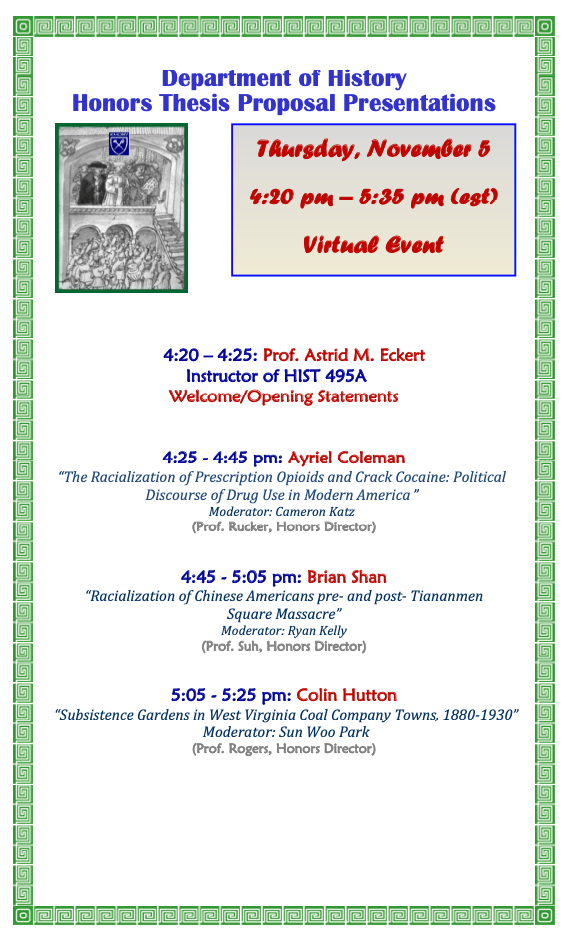
Congratulations to History graduate student Anjuli Webster on winning the 2019-20 Francis S. Benjamin prize for her paper, “From extraction to enclosure: Delagoa Bay as aqueous borderland in the nineteenth century.” The paper traces the history of failed British claims to Portuguese Delagoa Bay in south Eastern Africa over the nineteenth century. Through disputes over geography, jurisdiction, and possession of this imperial outpost, the border between what would become Mozambique and South Africa slowly and episodically coalesced long before the territorial carve up of Africa during the Berlin Conference of 1884.
The Benjamin prize was established in early 1974 in memory of Francis Benjamin who taught at Emory from 1946 till 1973. This gift is used to reward the best paper written by a graduate student during their first two years in the Emory History PhD program. View previous winners of the prize here.




